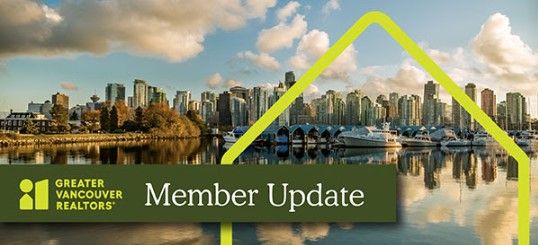Listing and buyer agency contracts are terms we use so often we may not give them much thought. But it’s important to remember that they are contracts. The words in them have meaning, and describe the rights and obligations of the parties. Our familiarity with them may, just sometimes, lead us to forget what they mean or take them for granted. That’s a risk, as we all know.
Take a listing contract, for example. The parties to that contract are the seller and your brokerage, not you. You’re appointed as the designated agent for the seller.
Your managing broker, as the representative of the corporate entity known as your brokerage, “owns” the listing. This means your managing broker has complete discretion, by virtue of the brokerage policy manual and your independent contractor agreement, to decide what to do with the listing contract should a seller demand it be cancelled. Ditto for a buyer agency contract.
Sometimes, no matter how hard you’ve tried, there isn’t a buyer willing to come to your seller’s party. Despite the advertising, showings, and all the other work you’ve done, there’s no buyer knocking on the seller’s door.
"That can be frustrating for the seller, not to mention to you and your bank account. Sometimes, this can lead to a frayed agent-seller relationship. Sometimes, despite your best efforts, the seller will tell you they want the listing contract cancelled so they can try their luck with someone else."
That’s understandable, but there’s no early cancellation of contract language in either the standard listing form or buyer agency contract. This means the seller can’t cancel you without your (more technically, your managing broker’s) consent, and you can’t cancel your seller (or buyer) without their consent.
As you can imagine, we don’t often hear from sellers or buyers who are unhappy that their agent is trying to cancel them.
When we do hear from sellers, the conversation often goes like this: “I want to cancel my listing, but your member won’t cancel it.”
We point out they’re in a contract with the brokerage and suggest they speak to your managing broker. We sometimes add that Greater Vancouver REALTORS® (GVR) isn’t a party to the contract and therefore, can’t cancel it. Feathers can get ruffled.
What are the options? Let’s take a look. (A GVR managing broker suggested I write about this topic.)
First, if you and your managing broker agree to it, the listing can be cancelled. Maybe you have good business reasons for saying goodbye. But you don’t have to cancel it early if you don’t want to. A refusal to cancel isn’t usually grounds for a professional conduct complaint—although the underlying reason for the cancellation demand might be. That’s a discussion for another day.
Which brings me to the two types of cancellation.
The first is a “standard” cancellation of listing contract. The standard form contains a clause saying that if the property sells after the cancellation, your right to collect the commission, as specified in the listing contract, remains alive until 60 days passes or the original contract expires, whichever comes first. If the seller really doesn’t want to sell and wishes to take the property off the market, then this clause shouldn’t concern them. Process the cancellation and move on.
The second type of listing cancellation is an “unconditional release,” which means exactly what it says. When signed, you and the seller no longer have any rights or obligations under that contract. It’s dead and buried, which may be something you want.
"But consider this: signing an unconditionally released contract means there’s no going back to claim a commission. This would be a pain if a buyer's agent had shown your listing with that buyer and later contracts with the seller directly to make a deal. It’s possible the buyer agent could want you to go after your seller for a commission, which you have now unconditionally waived. A tad messy, no? Think about this before you consider giving someone an unconditional release of listing."
There's a third option if your seller client is unhappy. If you agree to part company but don’t want to extinguish your rights under the listing contract by unconditionally releasing (or cancelling) it, you could offer the seller a “transfer of listing.”
With such a transfer, you agree to transfer a live listing contract to someone else, without affecting the rights of the parties. When I was a broker, I pushed for a transfer rather than an unconditional release, all day long. It’s up to you and your client (and the transferee brokerage) whether you negotiate a fee of some kind in return for agreeing to a transfer.
Top tip: Size does, indeed, matter
A longtime member writes: “[Here’s] something to address in your articles: I’m not sure if this might cause a legal issue if someone wanted to pursue it. Writing on a contract or subject removal that has a font so small it takes a magnifying glass to read it. This means a REALTOR® can’t read it with the naked eye, [nor can] the client and, at completion, a lawyer/notary. I’m seeing this more and more. Trying to stuff everything on one page on WEBForms just keeps shrinking the font to unreadable levels. I currently received a subject removal that had to be magnified to the max to barely read it.”
Kim's comment:
Vanity stopped me from getting reading glasses for many years before I finally gave in and bought some. Now I have a pair of cheap readers in every place I sit. If you do the same it means you never lose your glasses because you take them off and put them down as you leave your chair, confident that you’ll have the use of another pair in all the different places you sit, as you read something.
Notwithstanding that great plan, I still end up in situations where I am squinting at a screen or a page, trying to figure out what it says. That might be okay when choosing a movie to stream, but it isn’t okay when you’re helping clients with a contract involving big life decisions, like moving homes.
So in answer to this member, I’d say, I hear you. It’s annoying to see text reduced in size to fit into a form field. It’s not only annoying, it’s a liability risk for all concerned, including you. For members who haven’t yet reached an age where they’re reminded everyday that their eyes aren’t what they once were, can I suggest on behalf of the member, please do your clients, your colleagues, and someone’s else’s clients a favour. Make your font size big enough to read without an electron microscope.












